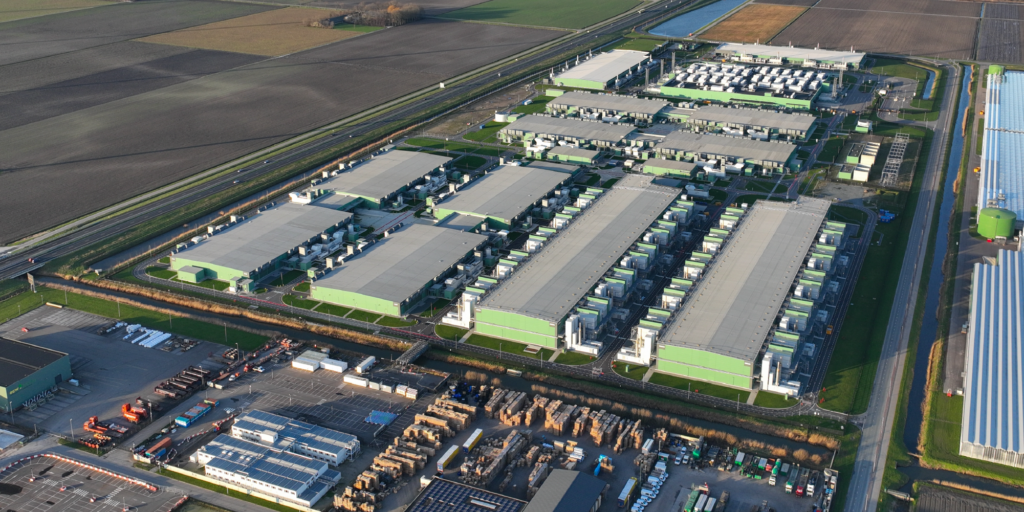— 6 min read
EPC Contractors in Australia & New Zealand: A Complete Guide
Last Updated Mar 6, 2025
Last Updated Mar 6, 2025

Engineering, Procurement, and Construction (EPC) contractors are an important part of large-scale infrastructure projects across Australia and New Zealand.These specialised firms offer a comprehensive solution for complex projects, managing the entire project lifecycle from initial concept to final handover.
Unlike general contractors, EPC contractors assume full responsibility for engineering, sourcing materials, and managing construction, consolidating these functions under a single contract. This streamlined approach enhances cost and schedule certainty, simplifies project coordination, and mitigates risks, often making EPC contracts a preferred choice for complex infrastructure and commercial construction projects, particularly in industries such as mining, energy, and public infrastructure.
Table of contents
What is an EPC Contractor and What are They Responsible for?
An EPC (engineering, procurement, and construction) contractor is a firm that delivers an entire operational project under a single contract, reducing the need for multiple specialty contractors.
An EPC contractor’s role is typically divided into three key phases:
1. Engineering
EPC contractors begin by laying the groundwork through:
- Comprehensive feasibility studies and technical assessments
- Detailed engineering planning, including process flow diagrams
- Ensuring compliance with Australian Standards (AS) and WHS regulations
- Developing innovative value engineering solutions to optimise project performance and reduce costs
2. Procurement
The procurement phase is important for project success. EPC contractors manage:
- Strategic procurement management planning
- Material sourcing from local or international suppliers
- Subcontractor selection through tender processes
- Evaluating suppliers and subcontractors based on: Quality, reliability, cost-effectiveness, delivery timelines
- Supply chain management and inventory control
- Navigating import and logistical challenges
3. Construction
During the construction phase, EPC contractors:
- Coordinate on-site operations and construction crews
- Implement stringent safety protocols
- Conducting inspections and quality control procedures per AS/NZS ISO 90001 standards
- Manage project challenges in real-time
- Provide regular updates and documentation to project owners
By consolidating these responsibilities, EPC contractors provide owners with a single point of accountability, reducing administrative complexity and project risk.
Other Key Responsibilities
Beyond their core engineering, procurement, and construction roles, EPC contractors are also responsible for:
- Risk management: Proactively identifying and mitigating risks like cost overruns, safety hazards, and supply chain delays
- Change management: Managing modifications to the project scope, cost, or timeline, ensuring clear documentation and communication
- Commissioning: Overseeing final inspections, testing, and system handovers, making sure the project is fully operational before it's handed over to the client
In Australia and New Zealand, EPC contractors have become increasingly essential for navigating the complex landscape of large-scale infrastructure development. These specialised firms are particularly crucial in strategic sectors such as:
- Mining, where complex extraction and processing projects demand comprehensive management
- Energy infrastructure requiring intricate technical coordination
- Public infrastructure development involving multiple stakeholders and rigorous regulatory compliance
By consolidating multiple project responsibilities into a single, streamlined approach, EPC contractors provide owners with a unique value proposition: a single, accountable point of contact that can effectively manage the entire project lifecycle, mitigate inherent risks, and deliver sophisticated infrastructure solutions with greater efficiency and predictability.
Understanding EPC Contracts in Australia
EPC contracts are legally binding documents that outline the full scope of project delivery. Key characteristics often include:
- Fixed-price agreements that provide cost certainty
- Contractor assumption of most project risks
- Alignment with Australian standards like AS 4902 and FIDIC Silver Book
Pro Tip
Typically, a lump-sum contract is used, where the price is fixed and agreed upon before the project begins. This provides owners with greater cost certainty and helps them overcome risk-related financial management challenges.
EPC Contracts vs. Design-Construct Contracts
EPC and design-construct contracts represent distinctly different approaches to project delivery, with varying implications for risk management, project scope, and owner involvement.
For Australian project owners, the choice between EPC and design-construct contracts often hinges on project complexity, risk tolerance, and desired level of owner involvement. Large-scale industrial projects like mining facilities, energy infrastructure, or transportation networks might benefit from the more comprehensive risk management approach of EPC contracts. Meanwhile, more design-focused projects, such as commercial spaces or residential developments, could potentially find design-construct contracts more appropriate, allowing for greater collaborative input and design evolution throughout the project lifecycle.
| Aspect | EPC Contracts | Design-Construct Contracts |
| Scope | Encompasses engineering, procurement, and construction in one contract | Combines design and construction, but may leave procurement separate |
| Risk Allocation | Contractor assumes substantial portion of project risks | Risks distributed more evenly between owner and contractor |
| Owner Involvement | Limited owner input once contract is signed | Owner retains more active involvement |
| Best Suited For | Complex industrial and infrastructure projects | Commercial and residential projects where design flexibility is valued |
Pros and Cons of EPC Contractors
EPC contractors can offer both advantages and potential challenges to owners.
| Advantages | Potential Challenges |
| Simplified project management through a comprehensive, integrated approach. | Less design flexibility and limited input to change scope once construction begins. |
| Reduced project risk by providing a single point of accountability across engineering, procurement, and construction phases | Higher upfront costs owing to risk premiums are included in fixed-price contracts (EPC contractors have to maintain a profit margin). |
| Improved cost predictability and project delivery efficiency | Contractual agreements can be legally complex. |
EPC Contractors vs. General Contractors
Depending on factors such as project complexity, risk tolerance, and the level of involvement you want from a contractor, you might choose to hire a general contractor over an EPC contractor.
These are the high-level differences between the two contractor types:
| Aspect | EPC contractor | General contractor |
| Scope | Manages the full project lifecycle. | Generally only manages the construction phase. |
| Risk | The contractor assumes greater risk. | More risk is borne by the owner. |
| Point of Contact | A single point of accountability for design, procurement, and construction. | Manages construction but reports to the client or project manager who manages engineering and procurement. |
Choosing the Right EPC Contractor
When choosing an EPC contractor, these are some of the essential qualities you’ll want to prioritise:
Proven Experience
Look for contractors with verifiable experience in your specific industry and with projects of comparable scope and complexity. Request case studies or references from previous clients to assess their performance history and ability to overcome challenges.
In-house Capabilities
The ability to handle engineering, procurement, and construction under one roof to improve efficiency and communication. Firms with robust in-house capabilities typically offer better integration, fewer communication issues, and more consistent quality control.
Safety and Quality Commitment
Prioritise contractors with documented safety protocols and quality assurance program. Review their safety statistics, incident rates, and quality control procedures to ensure they align with industry best practices.
Risk and Change Management
Assess how potential contractors identify, analyse, and mitigate project risks. The best EPC partners will have systematic approaches to risk management, including contingency planning, regular risk reviews, and proactive solutions to anticipated challenges.
Transparent Communication
Select contractors who demonstrate clear, consistent communication frameworks. Look for those who provide regular progress updates, maintain comprehensive documentation, and have established escalation procedures for addressing potential issues promptly.
Digital Technology Adoption
Assess how well potential EPC contractors integrate digital technology. Prioritise those using modern construction management platforms with features like real-time project tracking and collaboration tools for transparent communication, as these improve project outcomes. Ask for demonstrations during the selection process.
EPC contractors can be a great solution for complex projects.
EPC contractors offer a structured, accountable approach to large-scale projects, making them a good option for industrial and infrastructure developments in ANZ.
While they may not be suitable for all types of projects, especially those with flexible scopes or heavy design emphasis, EPC contractors are ideal for complex, industrial projects where efficiency, reliability, and clear accountability are paramount. When selecting an EPC contractor, it’s important to prioritise experience, in-house capabilities, safety, and risk management processes to ensure a successful partnership.
Categories:
Tags:
Written by
Samantha Nemeny
9 articles
Sam—Samantha if she’s feeling particularly academic—has spent a decade in content marketing, with eight years focused on Australia’s construction industry. She has a knack for making complex ideas easy to understand, turning industry jargon into clear, engaging stories. With a background in SEO and marketing, she’s spent the past three years at Procore, helping industry professionals navigate the world of construction with content that’s both insightful and easy to digest.
View profileExplore more helpful resources

Construction Handover: The Keys to a Smooth and Successful Transition
Project handover should be a seamless transition, but its success is determined long before the last walkthrough. When teams consistently align on design, timelines, and quality, and support that alignment...

Cutting Delays and Costs: Proven Ways to Boost Construction Site Efficiency
On-site efficiency separates profitable construction projects from those plagued by delays and budget overruns. In Australia’s construction landscape—where supply chain disruptions, skilled labour shortages, and increasingly strict regulations are the...

Why Communication is the Hidden Risk Factor in Construction
Construction is a high-risk industry—not just financially, but physically and reputationally. While significant effort goes into mitigating physical hazards, ensuring financial control, and protecting contractual interests, one of the biggest...

Data Centre Construction: Building the Cloud
As the demand for digital data increases, so does the demand for the physical structures and equipment needed to store and process data. Data centres are facilities that house computer systems...